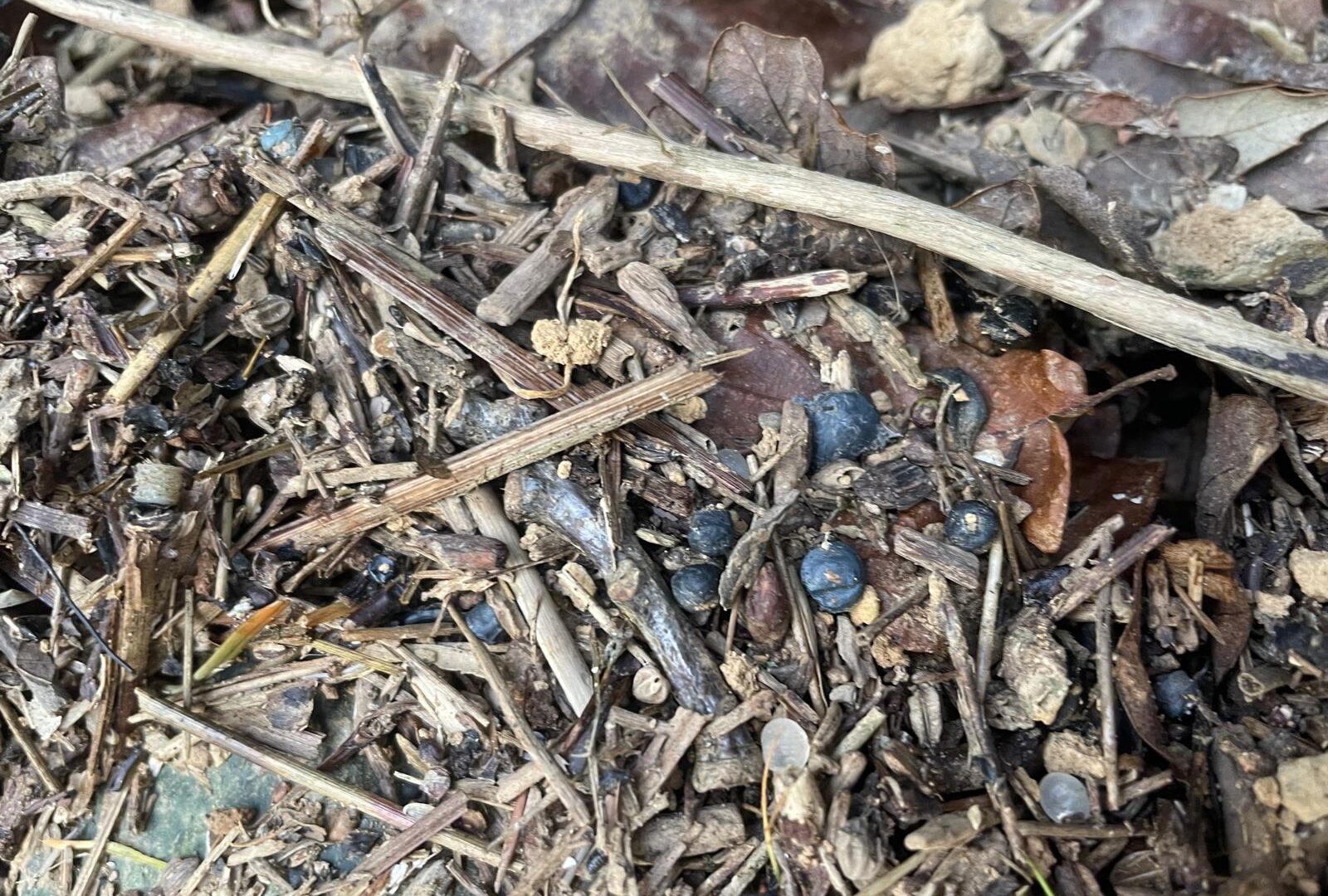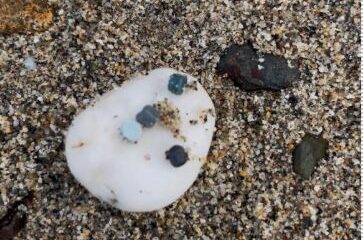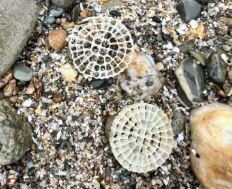
Where have bio-beads been found in the UK?
Case Studies From England and Wales
We know huge spills of bio-beads and other BAFF media used by UK water companies have been happening for years, and that they pose a real risk to the environment and wildlife. We also know they’re incredibly hard to clear up. But is it just big spills we need to worry about? Or is there a more underlying systemic issue at play?
Where exactly have bio-beads been found in the UK? We hear from our communities on the ground, and the real evidence for the scale of the problem is quite frankly – shocking.
Camber Sands: Not just this year
Camber Sands has experienced major spills of bio-beads before. A report by Rother Council and Strandliners found the area is a bio-bead hotspot, and that two major pollution incidents were reported to the Environment Agency in 2010 and 2017. The council also found bio-beads at another site in Beckley, around the plant perimeter and entrance gates. A sign not just of an isolated incident, but a deeply rooted problem.
“Strandliners first discovered bio-beads at Camber in 2012. Following the 2017 spill, we put together a citizen science surveying protocol – anyone can do this – to record changes in the number of bio-beads on the beach. As a result, when the latest spill happened, we were prepared for action.” Beverley Coombes, Strandliners.
It’s apparent it is up to the community to notice and react to spills, rather than the water companies themselves.

Every corner of Cornwall
Cornish communities will tell you bio-beads are common across beaches. A study by Cornwall Plastic Pollution Coalition (CPPC) in 2018 found bio-beads at Maenporth, Tregantle, Whitsand Bay, Praa Sands, Perranporth, East Looe River, Chapel Porth, Watergate Bay, and St Austell.
In 2010, 5.4 BILLION bio-beads were spilled into the River Fal from South West Water’s plant near Truro. The steel meshing holding the beads, split. It wasn’t until a member of the public raised the alarm that anything was done about it. The CPPC reported that the Environment Agency visited the site, to still find bio-beads actively spilling into the environment.
The plant was decommissioned after the spill and despite a clean-up effort at the time, Plastic Free Falmouth, are finding bio-beads along the Fal River still, 15 years on. Lead Emma said:
“In some places, the beads are now buried deep into the river banks, into the vegetation and soil layers. It’s shocking and incredibly sad that this pollution is found in such high numbers in our beautiful river, and no-one is held properly to account, or helping to clean it up.”
Down near Penzance, SAS volunteers have also been finding bio-beads for over a decade. Collected in the beauty spot of St Michael’s Mount, time after time, clean after clean. It’s not known where the beads are from, summing up the problem. Why aren’t we being told about spills? And why is it up to communities to spot them and clean up the devastating aftermath?

Plymouth: A management shambles
In 2017, a leak of bio-beads in Plymouth went unnoticed and un-investigated by South West Water. Until the alarm was raised by a member of the public. When the Cornwall Plastic Pollution Coalition visited the site, they found many huge bags containing bio-beads at a poorly-secured storage site near treatment tanks. Vandals had split the bags, which were open to the elements, and the beads were spilling out across public paths and entering the river.
Claire Wallerstein, from the CPPC told us.
“Our experience of visiting SWW wastewater sites was really alarming. At Plympton, we found beads scattered and spilled all over the ground in the areas around the reactors, but staff on site seemed to be oblivious – and campaigners in Dorset who have visited the Uplyme plant reported exactly the same
“The spill in Plymouth totally unnoticed by South West Water, until someone walking by the river actually slipped and fell on the beads. It really beggars belief that anyone could have thought a system using miniature plastic beads right next to waterways would not be a recipe for disaster. The end result has been irretrievable, long-term, widespread plastic pollution. Even reaching the coasts of other countries, due to poor management, human error and a system that is inherently prone to fail.”

Lyme Regis: A little here, a little there adds up to whole lot
Plastic Free Lyme Regis, River Lim Action Group, Charmouth Heritage Centre and other local organisations have been dealing with their own plaque of bio-beads. A problem since 2017, they are still being found on Charmouth Beach today.
Not a one-off spill, but a flow of bio-beads washing up for years, that is impossible to quantify, and is just as devastating for communities and local wildlife as single incidents.
Communities there are still searching for answers on where the beads are coming from. There is a sewage works at Uplyme not far from the beach.
From Swansea to Pembrokeshire
In October this year, SAS Reps and Plastic Free Community Leads in Swansea and Pembrokeshire, helped raise the alarm when a huge number of plastic discs washed up on a number of beaches across South Wales.
The discs had been accidentally released from Welsh Water’s Treatment Works in Swansea, and quickly spread to the Gower, Neath Port Talbot and even further afield in Pembrokeshire.
Jeremy Wadia, the Community Lead for Plastic Free St Davids, Solva and Llanrhian and part of the EcoDewi team, has had over 700 discs reported to him. We know many more were spilled and are being found across South Wales.

Natural Resource Wales have been investigating the incident, but communities are left wondering who will be held accountable…
Jeremey told us “We were stunned to receive so many messages of similar finds, after we posted on social media. To think our own national water company, responsible for keeping our waterways clean, is the cause of this plastic pollution is shocking. Especially when it seems to have been kept very quiet with no real accountability yet or clear action to combat the pollution impacting our marine wildlife and communities.”
There are common themes
Bio-beads strewn across sites and spilling from broken systems. Communities left to sound the alarm. Underinvestment. Poor management. Lack of action, transparency and accountability all play into the perfect storm. Water Companies yet again are failing us. We need:
- Water companies to foot the bill for the clean-up operations and ongoing monitoring into the impact of leaks. From profits and not customer bills.
- Complete transparency from water companies when spills happen. An immediate alert from water companies to the public to enable monitoring & cleanup without delay.
- An independent investigation into spills to be conducted, with findings and solutions clearly communicated to the public.
- Better regulation and enforcement around bio-beads / BAFF media and use of them in the water industry
As these wastewater treatment plants approach 30 years old, a perfect storm is about to turn into a hurricane of a problem if nothing is done.
